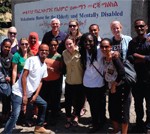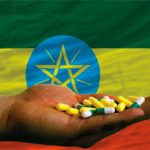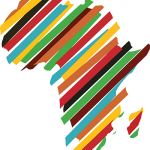Dr. Mody is author of a recent paper, titled “Rheumatology in Africa—challenges and opportunities,” that appeared in Arthritis Research & Therapy.5 He says, “Physicians from North America, the UK, Europe and Africa have received grants from the International League of Associations for Rheumatology and have helped develop rheumatology services in such countries as Zambia and Kenya. And to help remedy the situation in Ethiopia, where there are no rheumatologists, Canadian and American physicians are currently working with local experts to advance training and education.”
Despite progress, the fact remains, says Dr. Mody, that rheumatology services are scarce or nonexistent in many parts of Africa. “In most countries, patients do not have access to diagnostic tests, biological agents or arthroplasty. And with the wave of urbanization, we have seen a rise in such conditions as rheumatoid arthritis, gout and lupus. Add in the fact that there is often a delay in diagnosis due to poor education, sociocultural beliefs and poverty, [and] it is not uncommon for us to see patients who are presenting to clinics for the first time who are confined to a wheelchair or bed. If patients have joint damage, can’t close their fists or require an assistive device, then the opportunity to arrest the disease is largely lost.”
So let’s get to work, says Dr. Mody.
Dr. Mody has his own theory about the best way to advance the cause of rheumatology in Africa. “I believe in drivers—people who are committed to taking the ball and running with it. Once these individuals are trained, then we must support them over the following few years. You cannot train people and then leave them in isolation. They need support and guidance to develop services and train other health professionals.”
On the Ground in Ethiopia & Kenya
Michele Meltzer, MD, is associate professor of rheumatology at Thomas Jefferson University Hospital in Philadelphia. Lead author on a recent African Journal of Rheumatology article, titled “Bioethical challenges to rheumatology in resource poor areas: A review,” Dr. Meltzer digs into the details of decision making in rheumatological care in Africa.6 “In the U.S., we consider the patient to be the decision maker, but in Africa, it may be the community that is making the decisions. If a village has limited resources, then the powers that be may decide to treat the breadwinner as opposed to the child or elderly person.”
Patients don’t always advocate for themselves, says Dr. Meltzer. “If you have a patient who is illiterate and they have a complex disease, how do you explain it? Often, patients don’t pose any questions. We need to explore ways to help them feel comfortable discovering more information about their conditions.”



